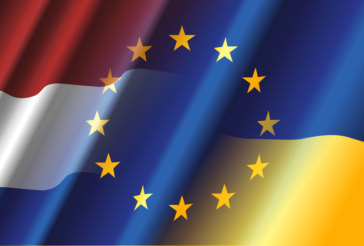IEP Analysis: Dutch government asks for prolonged reflection period for EU-Ukraine Association Agreement

Postponed, and then abandoned?
Dutch government asks for prolonged reflection period for EU-Ukraine Association Agreement
Is the Association Agreement between Ukraine and the European Union finally coming or not? The Dutch government has postponed the decision on its ratification until the EU summit in the middle of December. In the meantime the government plans to broker a legally binding deal which would tackle the objections of those Dutch who voted against the Association Agreement in the referendum, therefore allowing to build a parliamentary majority for its ratification. Prime Minister Mark Rutte has already announced following provisions of this new document:
- No freedom of movement for workers from Ukraine
- No guarantees on collective security or single-state obligations on military cooperation
- No perspective for EU-membership
- No obligation of financial assistance to Ukraine
But none of the above is part of the Association Agreement. The goal of the agreement is to mutually open the markets for secure and highly qualitative products. The Dutch demands show once more that the referendum and public debate do not concentrate on the Association Agreement and its provisions, but reflect a strongly negative attitude towards policymaking within the EU.
Moreover, further delaying the decision about the ratification or rejection of the Association Agreement only contributes to the growing Ukrainian perception of the EU as a shaky and unpredictable partner.
The association with the EU presents the reform plan that the Ukrainian government and society so urgently need. But the high costs that go together with it (war in the East of the country, painful structural reforms, etc.) are impossible to bear without a wide support from the society and the middle-term perspective of being rewarded for the efforts. Contradictory signals from Brussels and EU member states give new impetus to the opponents of the reforms and let down their supporters. The case of visa liberalization is yet another example. Even though Ukraine fulfilled all the requirements determined in the Visa Liberalization Action Plan, the date for introducing visa-free travel is not yet known.
The European Neighborhood Policy, in the framework of which the agreement was negotiated, is an important part of the EU’s foreign policy. But such action of a single member state calls this assumption into question. Stability and prosperity, goals of this policy, should not fall prey to populistic arguments. Even more so, when they are arbitrarily oriented against Ukraine. Not long ago, Netherlands ratified similar Association Agreements with Georgia and Moldova without any difficulties.
The EU needs a strong voice when deciding about foreign and trade policies, as the Dutch government aptly put it. But such decisions also require courage and will from the member states, which should be ready for compromises and think further ahead than the next coming elections.
Background
In April 2016 Dutch citizens voted in the referendum on the ratification of the EU-Ukraine Association Agreement. 61% of them voted “against” the agreement with the turnout above 32%.
Dutch parliament obliged the government to put forward a draft bill until 1 November in which it would either accept or reject the ratification.
The Association Agreement has been already ratified by all the other 27 member states. The free trade part of the agreement entered into provisional application on 1 January 2016. Since the association treaty was concluded as a so-called ‘mixed’ agreement, it requires ratification of all the member states because it interferes with their exclusive competences.